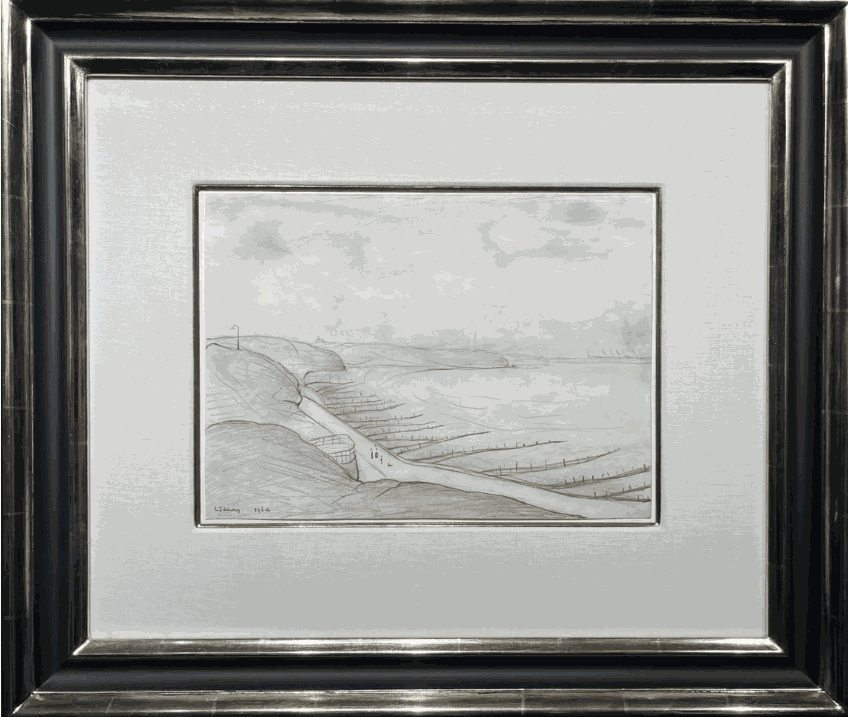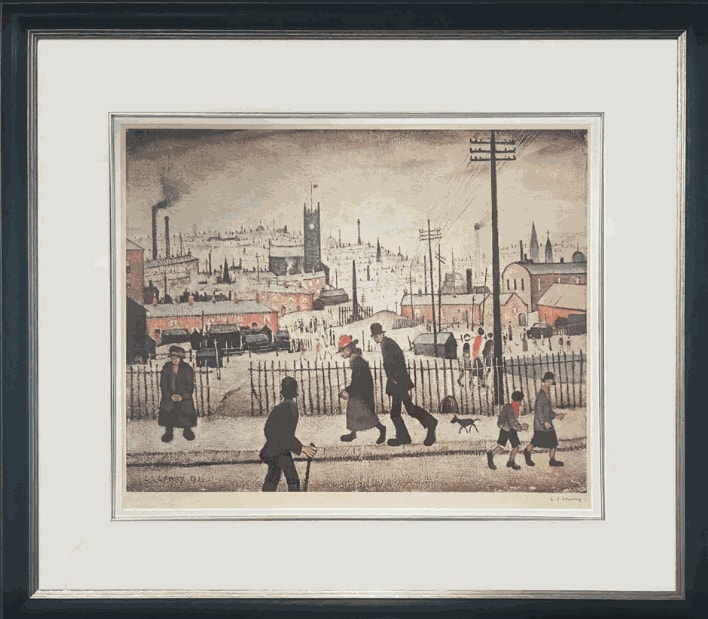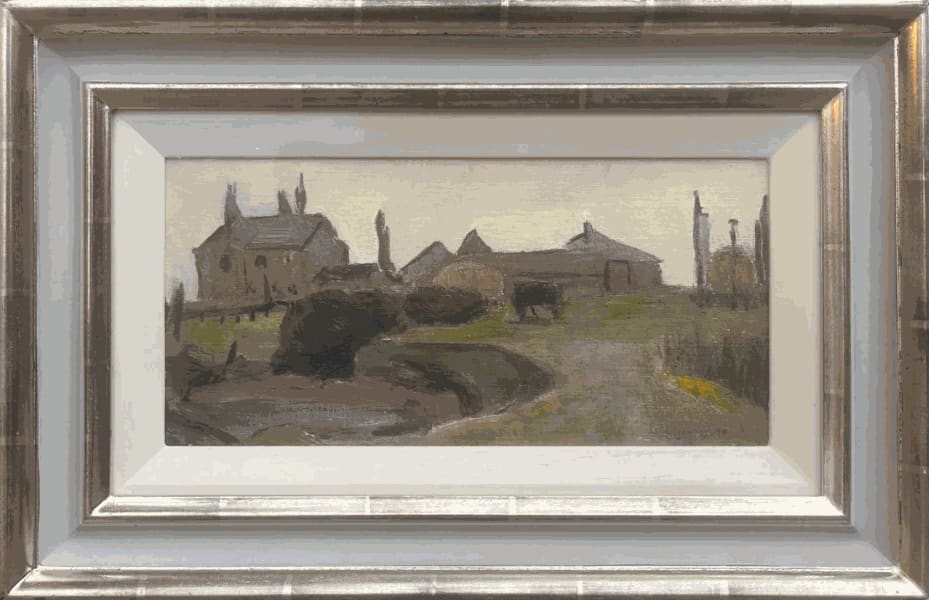"I am not an artist. I am a man who paints.
 "
"
This might be one of the most quietly defiant L.S. Lowry sayings. It’s almost like he’s brushing off the pomp and posture that often surrounds the title of “artist”. What mattered more, it seems, was the act of doing—the routine of painting without the need for recognition. For those who study Lowry paintings and philosophy, this quote shows just how rooted he was in the everyday. There’s no ego here, just a man at work, drawing meaning from repetition.
"You don't need brains to be a painter, just feelings."
There’s something both tongue-in-cheek and quietly radical in this line. It’s not that Lowry lacked intellect—far from it—but he distrusted the overanalysis that often shrouds modern art. For him, painting was emotional labour, not academic exercise. In a way, this quote pushes back against elitism, suggesting that sincerity trumps theory. Among quotes from Northern artists, it’s one of the more revealing—stripping art down to instinct, rather than intellect. Lowry on art? It was always personal first.
"I only paint what I see, you see."
Simple on the surface, yet loaded with intent. This quote anchors Lowry’s commitment to direct observation—a hallmark of Northern art inspiration. His scenes weren’t imagined idylls but reflections of what stood outside his window: factories, queues, chimneys, and all. It’s this clarity of purpose that makes his work endure. Among British artist quotes, this one says it all: Lowry didn’t embellish. He witnessed, then recorded. That was the point—and the poetry—in his practice.
"If people call me a Sunday painter, I'm a Sunday painter who paints every day of the week!"

Lowry delivered this with typical bite. It’s a comeback that pokes fun at those who questioned his seriousness—critics who saw his style as too plain or provincial. Yet he turned the insult on its head. This wasn’t just defiance; it was commitment. Daily painting wasn’t about prestige, it was survival. Among famous quotes by L.S. Lowry, this one sums up his quiet resilience. He didn’t ask for a label—he just got on with the work, regardless of who approved.
"I paint to fill the time. Otherwise, I'd have nothing to do. I'd just die."
This might be Lowry at his most stark. There’s no romance here—just a raw admission that painting wasn’t optional. It was the thing that kept him going, especially in the silence of his later years. For those familiar with Lowry’s view on modern art and life more broadly, this quote reads less like melodrama and more like fact. He lived alone, but his pictures gave him purpose. It’s a sentiment that adds quiet gravity to every piece he left behind.
"I have been called a painter of Manchester. I am not—what I do is much wider than that."
In the world of L.S. Lowry, he wasn’t fond of boxes, and this quote makes that plain. He’s often tied to Manchester—and rightly so—but that wasn’t the limit of his vision. What he painted, really, was people in place: quiet figures in shared silence, factories as backdrops to daily endurance. It's the emotional geography that matters. This line, like many Lowry quotes, pushes back against narrow reading. The industrial north was his setting, but the themes—alienation, routine, resolve—spoke far beyond one city.
"An artist must train himself to see the beauty in the ugly."

This is probably the closest thing to a mission statement you’ll get from Lowry. Chimneys, mills, back alleys—they weren’t picturesque, but they were real. And to him, that was enough. Lowry paintings and philosophy often orbit this tension between bleakness and beauty. He didn’t paint decay to shock; he painted it because it was there, and because it moved him. Among British artist quotes, this one sticks—it’s an invitation to look harder, and maybe, to feel a little more honestly.
"I have no family, only my pictures, and I live for them."
It’s hard not to feel the weight of this one. For all his public recognition, Lowry’s private life was defined by solitude. His work wasn’t a hobby or a career—it was companionship. The pictures filled a space that others might have filled with people. In the context of Lowry on art, this quote says plenty. Painting wasn’t just expression; it was survival, loyalty, even love. And perhaps that’s why each piece feels so inwardly complete.
"I don't like modern art, I can't understand it, and I don't want to understand it."
There’s no diplomacy here—just Lowry saying what many quietly think. He wasn’t swayed by trends or theory. Conceptual abstraction held no appeal. For someone so often labelled eccentric, he was, in fact, a traditionalist at heart. This quote reflects Lowry’s view on modern art with brutal clarity: if it didn’t move him, he dismissed it. Not out of ignorance, but instinct. That, perhaps, is why so many still relate. He painted for feeling, not fashion.
"You don't need to travel far to find interesting things to paint. I've never been abroad in my life."
Lowry never felt the need to chase inspiration overseas. His subject matter lived on street corners, in bus queues, and beneath factory smoke. It wasn’t glamour he was after—it was honesty. This line, like many quotes from Northern artists, suggests a kind of creative rootedness. He proved that the local could be universal. For collectors and admirers alike, it’s a quiet reminder that depth doesn’t always lie in distance. Sometimes, it’s right there at your doorstep.

